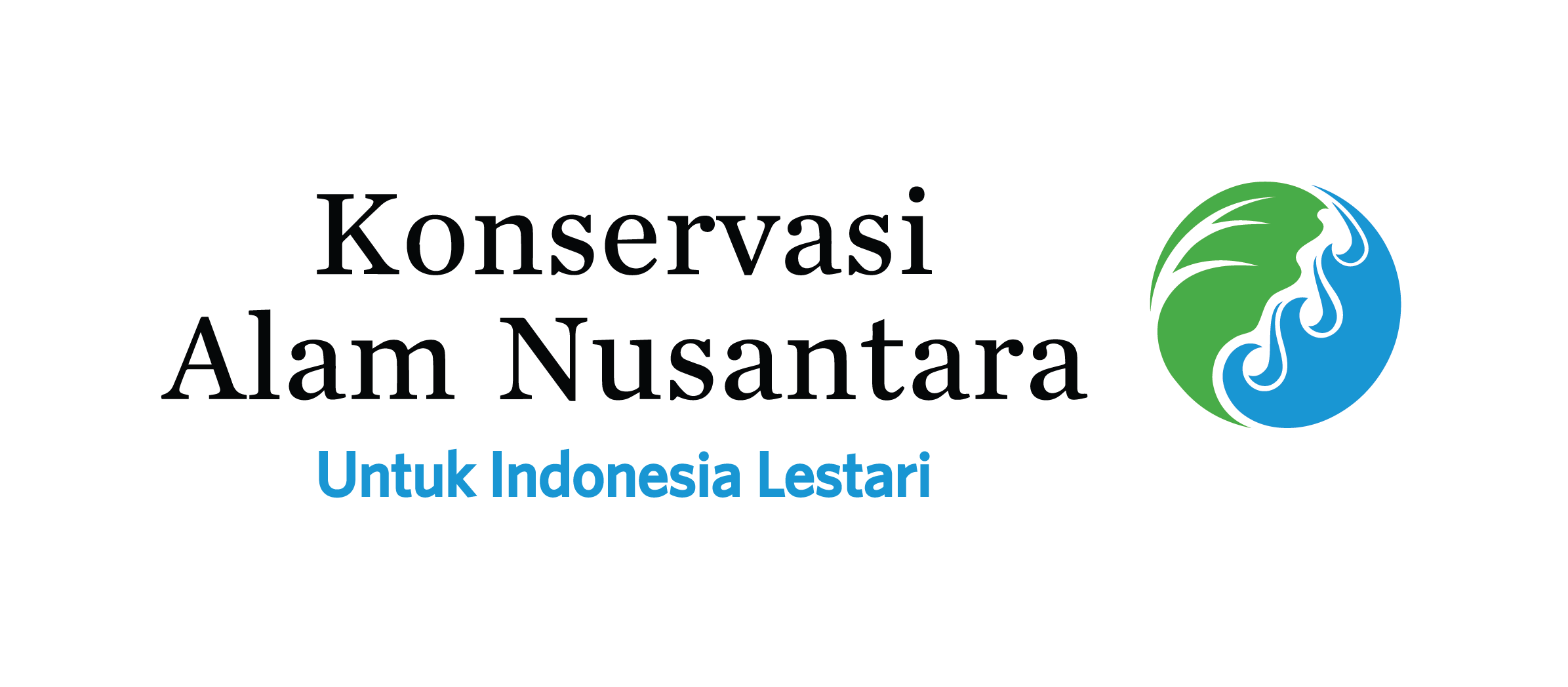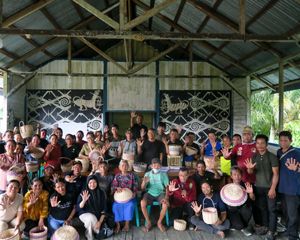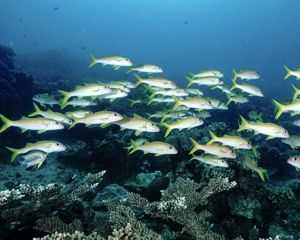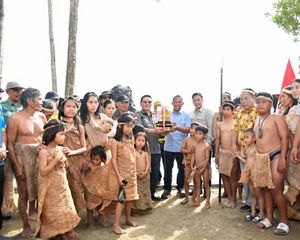
When SIGAP was designed in Merabu village, securing management rights over the forest was the villagers' hope to protect and utilise the forest within the village’s administrative area. After a lengthy application process, in 2015, Merabu became the first village in Berau Regency to obtain a village forest permit (8,425 ha) from the Minister of Forestry.
Read: Supporting the Community Economy While Preserving Coastal Areas
Aligned with SIGAP’s expansion for village empowerment, YKAN’s support for social forestry has also grown significantly. As a member of the PPS Working Group (Social Forestry Acceleration Working Group) in East Kalimantan province, YKAN has been providing funding since 2020 to NGO partners to facilitate social forestry proposals.
This facilitation includes the establishment of management institutions, participatory mapping, preparation of forest management plans, and the preparation and submission of proposal documents. It also involves facilitating communication and coordination between applicant villages and the Forest Management Unit (KPH), the Forestry Service, and the Ministry of Forestry.
These NGO partners operate in different regencies and important landscapes: Yayasan Biosfer Manusia (BIOMA) in Kutai Kartanegara, Kawal Borneo Community Foundation (KBCF) in East Kutai, Pekumpulan Selaras Alam (PSA), and Perkumpulan Perisai in Berau. The areas facilitated for social forestry proposals are much larger, but processing is limited due to the village forest area restriction, which cannot exceed 5,000 ha. Additionally, many partnership forestry scheme proposals between forest farmer groups (KTH) and logging companies—formerly known as HPH (forest concession rights) and now PBPH (forest utilisation business permits)—have not been processed further due to concerns about placing a burden on the companies.
These NGOs have made significant contributions to the expansion of social forestry in East Kalimantan, which grew from 170,723 ha (63 units) in 2020 to 325,880 ha (178 units) in 2024. The majority—281,386 ha (83 units)—comprises village forests.
YKAN's support as a member of the PPS Working Group in North Kalimantan for accelerating the expansion of social forestry is manifested through funding support to NGO partners, namely the Sustainable Forest Association (PLHL) and the Environmental Care Association (PERDU). This support facilitates coordination with the Forest Management Unit (KPH) of Bulungan to assist in the submission of social forestry applications in the Kayan River landscape.
The district government provides support for the recognition process of customary law (MHA) and for submitting applications for customary forest designation to the Minister of Forestry. Legal experts from Parakayu and Gadjah Mada University are providing input and support to the Indigenous Community Recognition Committee (PPMHA) in Bulungan Regency. They are assisting with receiving applications and conducting verifications. The Punan Batu Sajau community was recognized as an indigenous community. This group received the Kalpataru Award for its environmental conservation efforts. During the Kalpataru Award ceremony on World Environment Day, June 5, 2024, in Jakarta, the Minister of Forestry presented the Punan Batu Sajau community with an application for the designation of their customary forest.
In Malinau Regency, the Serasi Alam Shanti Foundation (SASHI) facilitated several communities in submitting applications for MHA recognition, conducting verifications through the Indigenous Affairs Management Agency (BPUMA), and securing decree issuance from the regent. The Coordination with KPH Malinau, three indigenous communities that have received MHA recognition, subsequently submitted applications for customary forest designation to the Minister of Forestry.
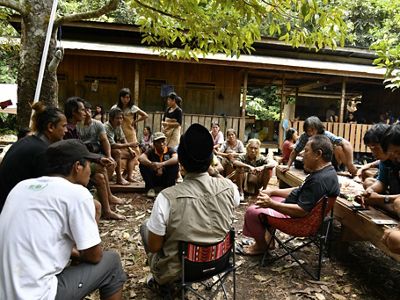
YKAN funding support is also provided directly to social forestry management institutions in Berau, East Kutai, and Bulungan that can prevent or reduce the rate of deforestation. These small funds support social forestry management institutions in implementing forest management activity plans. This includes forest protection (patrols, guard posts, warning signs) and sustainable utilization of forest products such as agroforestry development (tree seedlings), non-timber forest products (honey, agarwood, rattan), and ecotourism. This is expected to help prepare social forestry management institutions to face the challenges of forest management in the future and seize opportunities for access to funding support from government and non-government sources.
Looking at the progress made by SIGAP villages from the beginning until now, it is hoped that more and more communities living around forests will gain access to forests resource management, while also supporting protection and conservation efforts. These efforts are a result of strong cooperation and partnerships between various stakeholders.
